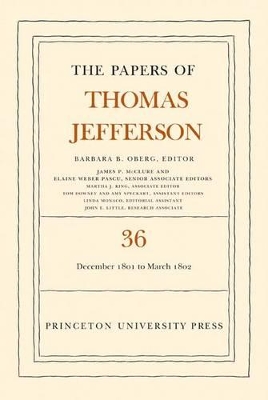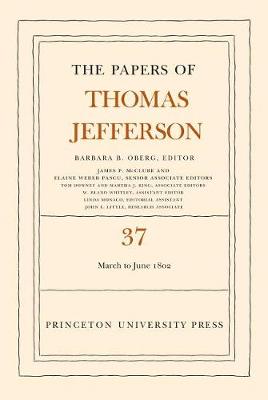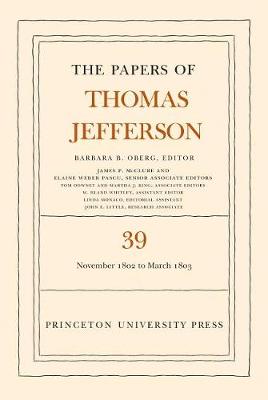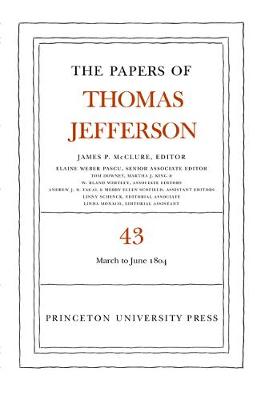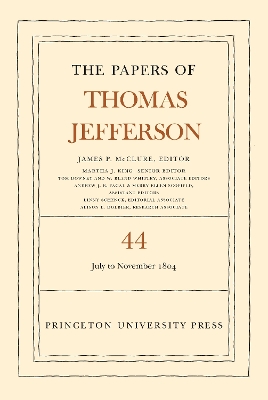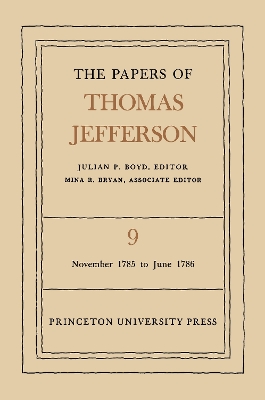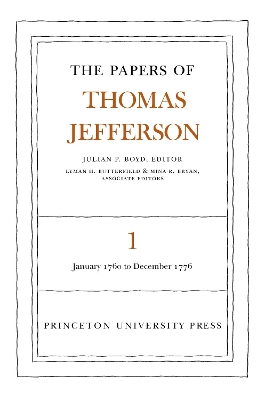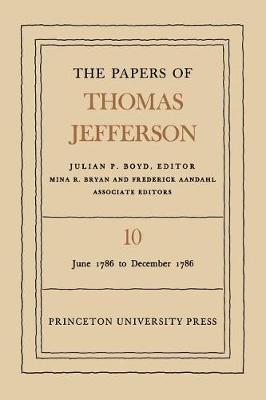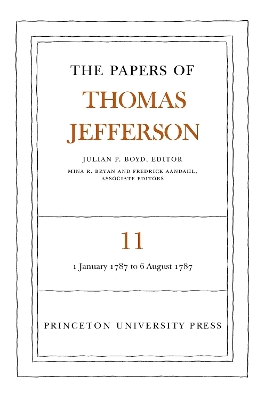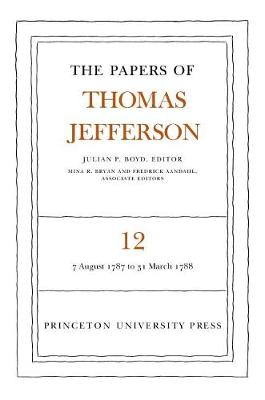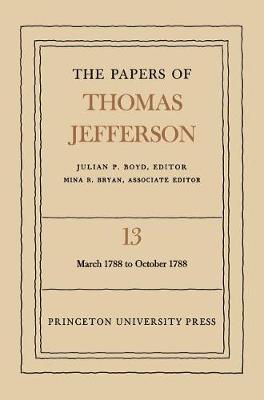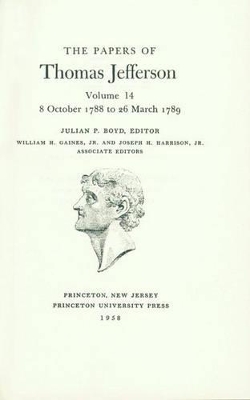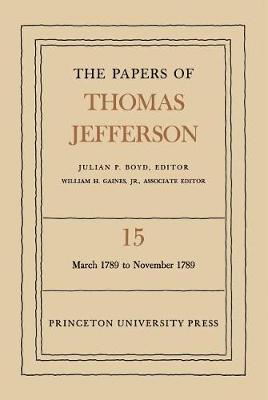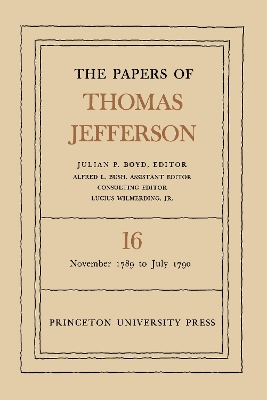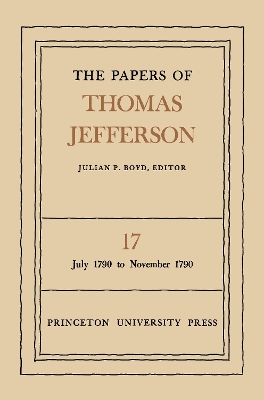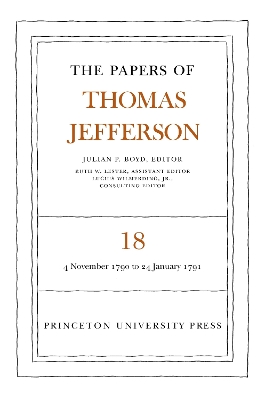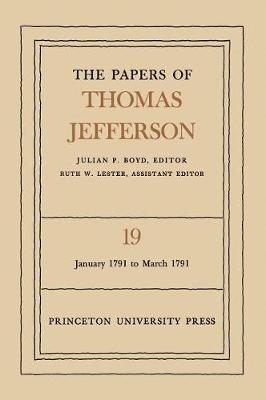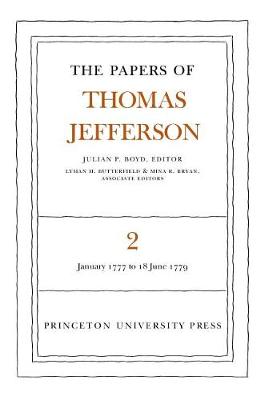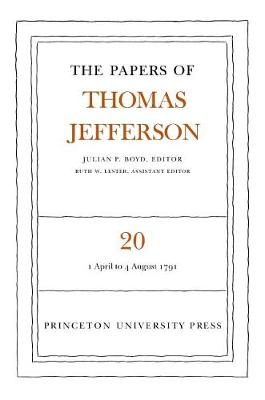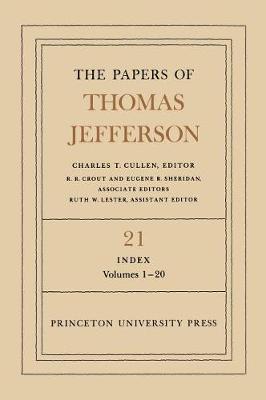Papers of Thomas Jefferson
43 primary works • 45 total works
Book 36
He uses such occasions to bridge the divide between the executive and legislative branches and foster political understanding between Republicans and Federalists. As he moves into his second year as president, he is optimistic about his legislative program and the Republican majority in Congress.
Book 37
In May, he has Antonio Giannini plant several varieties of grapes in the southwest vineyard, and he orders groceries, molasses, dry Lisbon wine, and cider to be shipped to Monticello in time for his arrival. He looks forward "with impatience" to the moment he can embrace his family once more.
Book 39
During the months of this volume Jefferson never leaves the capital, even for a brief sojourn at Monticello. He does, however, enjoy a visit of six weeks from his daughters and two of his grandchildren. They participate in Washington society, capture the affection of Margaret Bayard Smith, and brighten Jefferson's days.
Book 43
Jefferson appoints John Armstrong to succeed Robert R. Livingston as minister to France and attempts to persuade Lafayette to move to Louisiana. In Paris, Napoleon is proclaimed Emperor of the French. Jefferson has "brought peace to our Country and comfort to our Souls," John Tyler writes from Virginia.
Book 44
Book 46
Book 47
Book 48
Book 49
Book 50
Book 51
Book 52
Book 53
He writes long dispatches to Jay and private letters to Thomas Paine and Richard Price, among others, detailing the events that he regarded as "the first chapter of the history of European liberty." Early in September Jefferson becomes ill and, treated by a philosopher-physician, is possessed by the idea that "the earth belongs in usufruct to the living." He urges Madison to develop this concept and to apply it to American legislation--but his ostensible purpose is supported by arguments addressed wholly to the situation in France, whereby he furnishes justification for the abolition of ancient debts, the public appropriation of feudal grants, the wiping out of hereditary privileges, and the eradication of monopolies. Late in September, with Polly, Patsy, Petit, and two servants, Jefferson leaves Paris for a six months' leave, unaware that the same day the United States Senate confirmed his nomination as Secretary of State. Four weeks later he lands in Norfolk, where he is greeted by the officials--and finds that politics and anti-federalism are far from inactive in Virginia.
Book 54
Book 55
Book 56
It contains also his suggestions for the President's annual message and his first encounter, at the hands of Noah Webster, with Federalist ridicule of his interest in science. Despite his heavy official duties and the confusion into which his household was thrown when 78 crates of books, wines, and furniture arrived from France, Jefferson never failed to write his promised weekly letter to his daughters and son-in-law under the alternating plan which obligated each of them to write only once every three weeks. The record of this time of extraordinary pressure shows that Jefferson retained his usual equanimity except when, after a full two months, he failed to receive any scrap of writing from the little family at Monticello.
Book 57
This widely disseminated report is here presented in a context showing that, after Hamilton declined to cooperate in reciprocating the favors France had granted to American trade, Jefferson deliberately and publicly challenged the Hamiltonian opposition. In unusually blunt language, his report called for commercial retaliation against Great Britain, thus causing a sensation both in the ...ministry. This volume shows Jefferson's concern over the growing discontent in the South and West over fiscal and other policies of the national government, his resistance to interested promotion of consular appointments in business circles, his grappling with the political and constitutional questions concerning the admission of Kentucky and Vermont, his involvement in the political consequences of the death of Franklin that affected even the proceedings of the American Philosophical Society, his cautious relationship with Tench Coxe as a source of statistical information which the Secretary of the Treasury failed to supply, and his report to Washington on a judicial appointment that brought on both embarrassment and constitutional questions.
Once Congress had dispersed, Jefferson was able to turn his attention to long-neglected private concerns and to the correspondence that gave him most satisfaction, that with the family at Monticello.
Book 58
Book 59
Grappling with the threat of war with Spain, Jefferson involves himself equivocally in a diplomatically explosive plan by Genet to liberate Louisiana from Spanish rule. In this volume Jefferson also plays a decisive role in resolving a dispute over the design of the Capitol and plans agricultural improvements at Monticello in preparation for his retirement to private life.
Book 60
